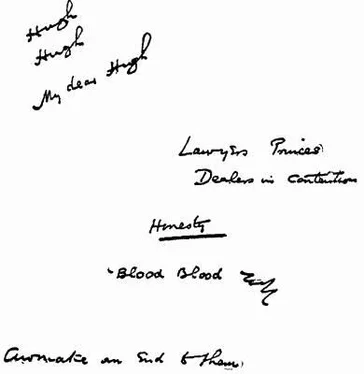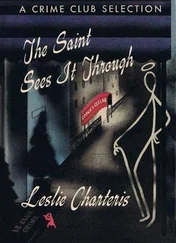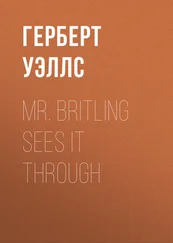Herbert Wells - Mr. Britling Sees It Through
Здесь есть возможность читать онлайн «Herbert Wells - Mr. Britling Sees It Through» весь текст электронной книги совершенно бесплатно (целиком полную версию без сокращений). В некоторых случаях можно слушать аудио, скачать через торрент в формате fb2 и присутствует краткое содержание. Жанр: Классическая проза, на английском языке. Описание произведения, (предисловие) а так же отзывы посетителей доступны на портале библиотеки ЛибКат.
- Название:Mr. Britling Sees It Through
- Автор:
- Жанр:
- Год:неизвестен
- ISBN:нет данных
- Рейтинг книги:4 / 5. Голосов: 1
-
Избранное:Добавить в избранное
- Отзывы:
-
Ваша оценка:
- 80
- 1
- 2
- 3
- 4
- 5
Mr. Britling Sees It Through: краткое содержание, описание и аннотация
Предлагаем к чтению аннотацию, описание, краткое содержание или предисловие (зависит от того, что написал сам автор книги «Mr. Britling Sees It Through»). Если вы не нашли необходимую информацию о книге — напишите в комментариях, мы постараемся отыскать её.
Mr. Britling Sees It Through — читать онлайн бесплатно полную книгу (весь текст) целиком
Ниже представлен текст книги, разбитый по страницам. Система сохранения места последней прочитанной страницы, позволяет с удобством читать онлайн бесплатно книгу «Mr. Britling Sees It Through», без необходимости каждый раз заново искать на чём Вы остановились. Поставьте закладку, и сможете в любой момент перейти на страницу, на которой закончили чтение.
Интервал:
Закладка:
Mr. Britling found a kindred spirit in Wilkins.
Wilkins was expounding his tremendous scheme for universal volunteering. Everybody was to be accepted. Everybody was to be assigned and registered and— badged .
"A brassard," said Mr. Britling.
"It doesn't matter whether we really produce a fighting force or not," said Wilkins. "Everybody now is enthusiastic—and serious. Everybody is willing to put on some kind of uniform and submit to some sort of orders. And the thing to do is to catch them in the willing stage. Now is the time to get the country lined up and organised, ready to meet the internal stresses that are bound to come later. But there's no disposition whatever to welcome this universal offering. It's just as though this war was a treat to which only the very select friends of the War Office were to be admitted. And I don't admit that the national volunteers would be ineffective—even from a military point of view. There are plenty of fit men of our age, and men of proper age who are better employed at home—armament workers for example, and there are all the boys under the age. They may not be under the age before things are over...."
He was even prepared to plan uniforms.
"A brassard," repeated Mr. Britling, "and perhaps coloured strips on the revers of a coat."
"Colours for the counties," said Wilkins, "and if there isn't coloured cloth to be got there's—red flannel. Anything is better than leaving the mass of people to mob about...."
A momentary vision danced before Mr. Britling's eyes of red flannel petticoats being torn up in a rapid improvisation of soldiers to resist a sudden invasion. Passing washerwomen suddenly requisitioned. But one must not let oneself be laughed out of good intentions because of ridiculous accessories. The idea at any rate was the sound one....
The vision of what ought to be done shone brightly while Mr. Britling and Mr. Wilkins maintained it. But presently under discouraging reminders that there were no rifles, no instructors, and, above all, the open hostility of the established authorities, it faded again....
Afterwards in other conversations Mr. Britling reverted to more modest ambitions.
"Is there no clerical work, no minor administrative work, a man might be used for?" he asked.
"Any old dug-out," said the man with the thin face, "any old doddering Colonel Newcome, is preferred to you in that matter...."
Mr. Britling emerged from his club about half-past three with his mind rather dishevelled and with his private determination to do something promptly for his country's needs blunted by a perplexing "How?" His search for doors and ways where no doors and ways existed went on with a gathering sense of futility.
He had a ridiculous sense of pique at being left out, like a child shut out from a room in which a vitally interesting game is being played.
"After all, it is our war," he said.
He caught the phrase as it dropped from his lips with a feeling that it said more than he intended. He turned it over and examined it, and the more he did so the more he was convinced of its truth and soundness....
§ 2
By night there was a new strangeness about London. The authorities were trying to suppress the more brilliant illumination of the chief thoroughfares, on account of the possibility of an air raid. Shopkeepers were being compelled to pull down their blinds, and many of the big standard lights were unlit. Mr. Britling thought these precautions were very fussy and unnecessary, and likely to lead to accidents amidst the traffic. But it gave a Rembrandtesque quality to the London scene, turned it into mysterious arrangements of brown shadows and cones and bars of light. At first many people were recalcitrant, and here and there a restaurant or a draper's window still blazed out and broke the gloom. There were also a number of insubordinate automobiles with big head-lights. But the police were being unusually firm....
"It will all glitter again in a little time," he told himself.
He heard an old lady who was projecting from an offending automobile at Piccadilly Circus in hot dispute with a police officer. "Zeppelins indeed!" she said. "What nonsense! As if they would dare to come here! Who would let them, I should like to know?"
Probably a friend of Lady Frensham's, he thought. Still—the idea of Zeppelins over London did seem rather ridiculous to Mr. Britling. He would not have liked to have been caught talking of it himself.... There never had been Zeppelins over London. They were gas bags....
§ 3
On Wednesday morning Mr. Britling returned to the Dower House, and he was still a civilian unassigned.
In the hall he found a tall figure in khaki standing and reading The Times that usually lay upon the hall table. The figure turned at Mr. Britling's entry, and revealed the aquiline features of Mr. Lawrence Carmine. It was as if his friend had stolen a march on him.
But Carmine's face showed nothing of the excitement and patriotic satisfaction that would have seemed natural to Mr. Britling. He was white and jaded, as if he had not slept for many nights. "You see," he explained almost apologetically of the three stars upon his sleeve, "I used to be a captain of volunteers." He had been put in charge of a volunteer force which had been re-embodied and entrusted with the care of the bridges, gasworks, factories and railway tunnels, and with a number of other minor but necessary duties round about Easinghampton. "I've just got to shut up my house," said Captain Carmine, "and go into lodgings. I confess I hate it.... But anyhow it can't last six months.... But it's beastly.... Ugh!..."
He seemed disposed to expand that "Ugh," and then thought better of it. And presently Mr. Britling took control of the conversation.
His two days in London had filled him with matter, and he was glad to have something more than Hugh and Teddy and Mrs. Britling to talk it upon. What was happening now in Great Britain, he declared, was adjustment . It was an attempt on the part of a great unorganised nation, an attempt, instinctive at present rather than intelligent, to readjust its government and particularly its military organisation to the new scale of warfare that Germany had imposed upon the world. For two strenuous decades the British navy had been growing enormously under the pressure of German naval preparations, but the British military establishment had experienced no corresponding expansion. It was true there had been a futile, rather foolishly conducted agitation for universal military service, but there had been no accumulation of material, no preparation of armament-making machinery, no planning and no foundations for any sort of organisation that would have facilitated the rapid expansion of the fighting forces of a country in a time of crisis. Such an idea was absolutely antagonistic to the mental habits of the British military caste. The German method of incorporating all the strength and resources of the country into one national fighting machine was quite strange to the British military mind—still. Even after a month of war. War had become the comprehensive business of the German nation; to the British it was an incidental adventure. In Germany the nation was militarised, in England the army was specialised. The nation for nearly every practical purpose got along without it. Just as political life had also become specialised.... Now suddenly we wanted a government to speak for every one, and an army of the whole people. How were we to find it?
Mr. Britling dwelt upon this idea of the specialised character of the British army and navy and government. It seemed to him to be the clue to everything that was jarring in the London spectacle. The army had been a thing aloof, for a special end. It had developed all the characteristics of a caste. It had very high standards along the lines of its specialisation, but it was inadaptable and conservative. Its exclusiveness was not so much a deliberate culture as a consequence of its detached function. It touched the ordinary social body chiefly through three other specialised bodies, the court, the church, and the stage. Apart from that it saw the great unofficial civilian world as something vague, something unsympathetic, something possibly antagonistic, which it comforted itself by snubbing when it dared and tricking when it could, something that projected members of Parliament towards it and was stingy about money. Directly one grasped how apart the army lived from the ordinary life of the community, from industrialism or from economic necessities, directly one understood that the great mass of Englishmen were simply "outsiders" to the War Office mind, just as they were "outsiders" to the political clique, one began to realise the complete unfitness of either government or War Office for the conduct of so great a national effort as was now needed. These people "up there" did not know anything of the broad mass of English life at all, they did not know how or where things were made; when they wanted things they just went to a shop somewhere and got them. This was the necessary psychology of a small army under a clique government. Nothing else was to be expected. But now—somehow—the nation had to take hold of the government that it had neglected so long....
Читать дальшеИнтервал:
Закладка:
Похожие книги на «Mr. Britling Sees It Through»
Представляем Вашему вниманию похожие книги на «Mr. Britling Sees It Through» списком для выбора. Мы отобрали схожую по названию и смыслу литературу в надежде предоставить читателям больше вариантов отыскать новые, интересные, ещё непрочитанные произведения.
Обсуждение, отзывы о книге «Mr. Britling Sees It Through» и просто собственные мнения читателей. Оставьте ваши комментарии, напишите, что Вы думаете о произведении, его смысле или главных героях. Укажите что конкретно понравилось, а что нет, и почему Вы так считаете.






